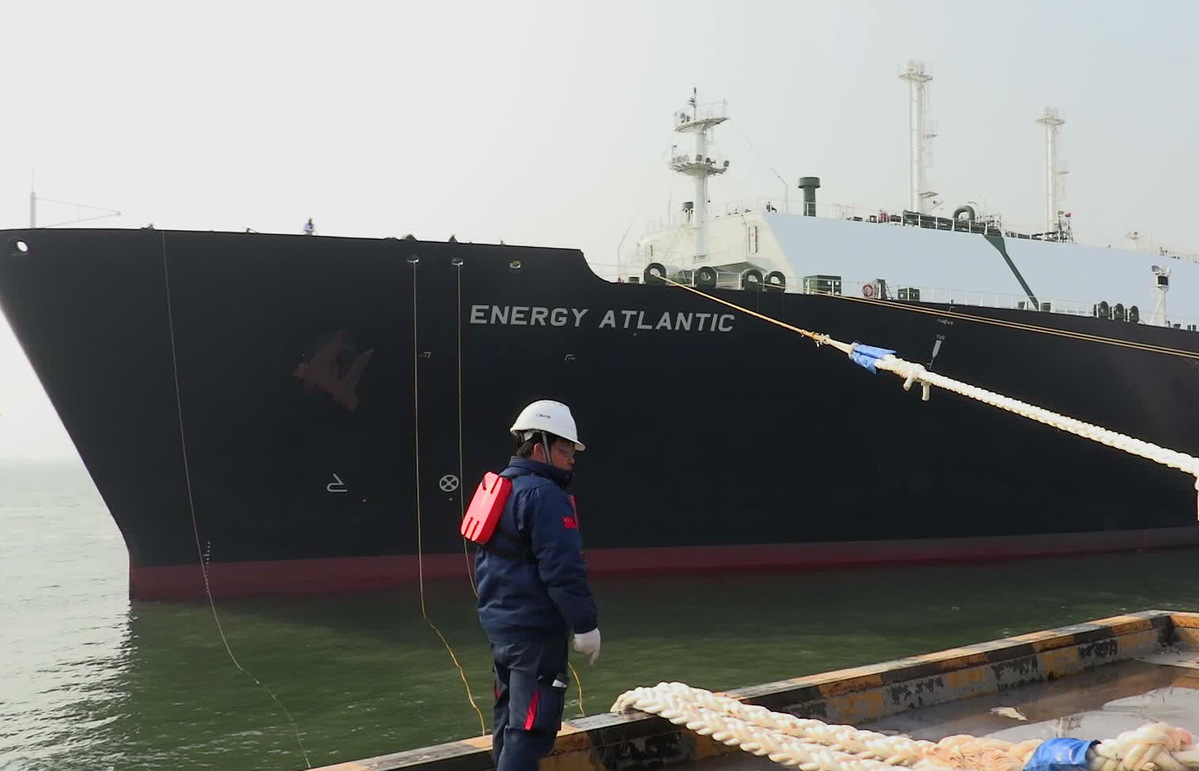Grim days ahead for US LNG sector as market shutout looms


China's move to raise tariffs on liquefied natural gas imports from the United States will crimp shipments to the world's fastest growing importer of the fuel and hurt US companies, experts said.
Despite surging demand for natural gas in China, the higher tariffs will have a limited impact on the domestic market but hurt the US LNG export sector badly, according to the resource and environment research center of Sinolink Securities.
China imported 54 million metric tons of LNG in 2018, a year-on-year increase of 42 percent. LNG imports from the US stood at 2.1 million tons, accounting for 4 percent of the total, it said.
Figures from Reuters also show that only two LNG vessels have gone from the United States to China so far this year, including one in January and one in February, compared with 14 during the first four months of 2018 before the start of the trade dispute.
While the LNG China imported from the US increased by more than 40 percent in 2018, the increase was mostly in the first half of last year. LNG Imports from the US from last October to March witnessed a six-month year-on-year negative growth since the Chinese government announced a 10 percent tariff on US LNG imports last September, it said.
The recent heating season witnessed an 82 percent decrease in LNG imports from the US compared with the same period a year ago. China still went through the heating season peacefully without experiencing any major gas shortage, thanks to the oil and gas majors' efforts to diversify gas imports and undertake domestic gas exploration, it said.
While natural gas has witnessed massive growth in sales in recent years in China, which is trying to reduce its dependence on coal, the US has become the fastest-growing LNG exporter worldwide and is expected to rank third in exports this year behind Qatar and Australia.
"For the heating season this year, as there is still several months to go, we believe the national oil and gas majors, including CNPC, Sinopec and CNOOC, will have sufficient time to ensure gas supply. With the China-Russian gas pipeline to be completed by the end of this year, China's gas supply will become more diversified," the center said in a note.
With no LNG imported from the US in October, December and March, the center expects Chinese buyers will reduce or suspend spot purchases of US LNG due to the higher tariffs in the ensuing months.
Some experts from the LNG sector expressed concern that the trade friction would have a long-term impact on the US LNG industry, making it more challenging for developers to sign commercial deals and secure financing.
According to Ira Joseph, head of global gas and power analytics at S&P Global Platts, the tariff is "the knockout blow".
"I expect they will have a hard time landing a tanker carrying US LNG in China if they impose a 25 percent tariff on it," Jack Weixel, senior director at IHS Markit's Point-Logic analytics arm, was quoted by Reuters as saying.
Li Li, energy research director at ICIS China, a think tank focusing on energy trends, said the higher tariffs could price US LNG out of the Chinese market, and make long-term contracts more difficult to negotiate.
China has imported 4.6 million tons of LNG from the US since 2016, becoming the third largest buyer of US LNG, accounting for 10 percent of US total LNG exports.
"While in the short term the US could sell its LNG to other regions to reduce the impact of losing Chinese buyers, losing China, the third largest LNG importer for the US market and the second largest LNG importer worldwide, will harm its LNG sector and delay the country's export facility construction," according to the center.
Jack Fusco, president and CEO of US natural gas exporter Cheniere Energy Inc, said on May 9 that the trade dispute is "unproductive and creates added costs for Chinese consumers".




































